Filter by
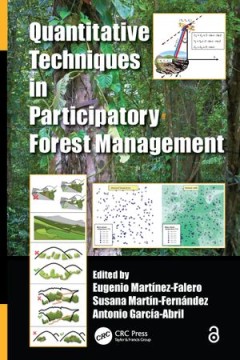
Quantitative Techniques in Participatory Forest Management
Forest management has evolved from a mercantilist view to a multi-functional one that integrates economic, social, and ecological aspects. However, the issue of sustainability is not yet resolved. Quantitative Techniques in Participatory Forest Management brings together global research in three areas of application: inventory of the forest variables that determine the main environmental indice…
- Edition
- -
- ISBN/ISSN
- 9781466569256
- Collation
- -
- Series Title
- -
- Call Number
- -
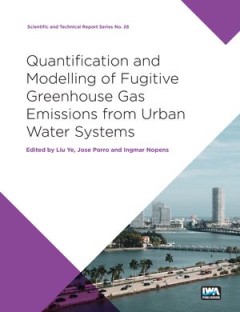
Quantification and Modelling of Fugitive Greenhouse Gas Emissions from Urban …
With increased commitment from the international community to reduce greenhouse gas (GHG) emissions from all sectors in accordance with the Paris Agreement, the water sector has never felt the pressure it is now under to transition to a low-carbon water management model. This requires reducing GHG emissions from grid-energy consumption (Scope 2 emissions), which is straightforward; however, it …
- Edition
- -
- ISBN/ISSN
- 9781789060461
- Collation
- -
- Series Title
- -
- Call Number
- -
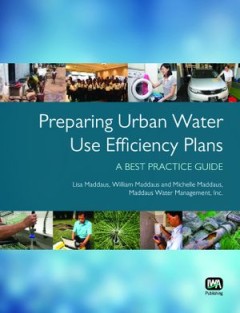
Preparing Urban Water Use Efficiency Plans: A Best Practice Guide
Many communities are facing water scarcity in developing and developed countries alike. There are numerous publications and on-going research studies documenting the changes in our climate and potential for worsening shortages in our future. Meeting future potable water demands as communities continue to grow will rely heavily on using our existing water resources more efficiently. Preparing…
- Edition
- -
- ISBN/ISSN
- 9781780405247
- Collation
- -
- Series Title
- -
- Call Number
- -

Permeable Reactive Barrier: Sustainable Groundwater Remediation
Remediation of groundwater is complex and often challenging. But the cost of pump and treat technology, coupled with the dismal results achieved, has paved the way for newer, better technologies to be developed. Among these techniques is permeable reactive barrier (PRB) technology, which allows groundwater to pass through a buried porous barrier that either captures the contaminants or breaks t…
- Edition
- -
- ISBN/ISSN
- 9781482224481
- Collation
- -
- Series Title
- -
- Call Number
- -

Modeling, Simulation and Optimization of Wind Farms and Hybrid Systems
The reduction of greenhouse gas emissions is a major governmental goal worldwide. The main target, hopefully by 2050, is to move away from fossil fuels in the electricity sector and then switch to clean power to fuel transportation, buildings and industry. This book discusses important issues in the expanding field of wind farm modeling and simulation as well as the optimization of hybrid and m…
- Edition
- -
- ISBN/ISSN
- 9781789856118
- Collation
- -
- Series Title
- -
- Call Number
- -
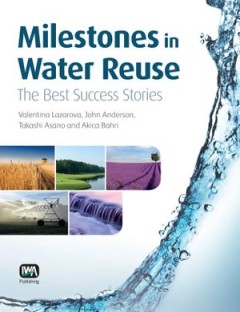
Milestones in Water Reuse
Milestones in Water Reuse: The Best Success Stories illustrates the benefits of water reuse in integrated water resources management and its role for water cycle management, climate change adaptation and water in the cities of the future. Selected case studies are used to illustrate the different types of water reuse, i.e. agricultural irrigation, golf course and landscape irrigation, urban and…
- Edition
- -
- ISBN/ISSN
- 9781780400075
- Collation
- -
- Series Title
- -
- Call Number
- -
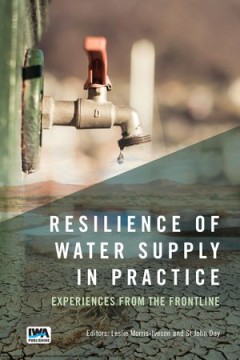
Linked Data; A Geographic Perspective
Linked Data opens up structured data from databases to be searched and queried via the web, and a geographic element is increasingly being used to link to those data. This book helps you understand how to organize and describe data that includes geographic content and how to publish it as Linked Data for the Semantic Web, as well as explaining the benefits of doing so. In easy-to-understand ter…
- Edition
- -
- ISBN/ISSN
- 9781439869970
- Collation
- -
- Series Title
- -
- Call Number
- -
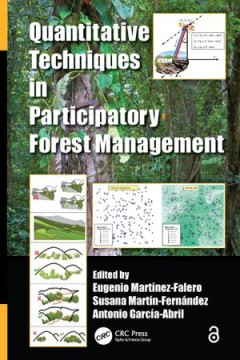
Quantitative Techniques in Participatory Forest Management
Forest management has evolved from a mercantilist view to a multi-functional one that integrates economic, social, and ecological aspects. However, the issue of sustainability is not yet resolved. Quantitative Techniques in Participatory Forest Management brings together global research in three areas of application: inventory of the forest variables that determine the main environmental indice…
- Edition
- -
- ISBN/ISSN
- 9781466569256, 1466569255
- Collation
- -
- Series Title
- -
- Call Number
- -
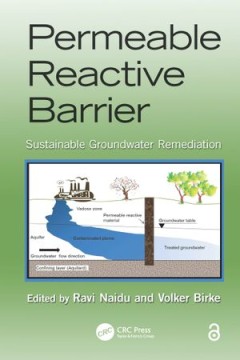
Permeable Reactive Barrier Sustainable Groundwater Remediation
Remediation of groundwater is complex and often challenging. But the cost of pump and treat technology, coupled with the dismal results achieved, has paved the way for newer, better technologies to be developed. Among these techniques is permeable reactive barrier (PRB) technology, which allows groundwater to pass through a buried porous barrier that either captures the contaminants or breaks t…
- Edition
- -
- ISBN/ISSN
- 9781482224481, 1482224488
- Collation
- -
- Series Title
- -
- Call Number
- -

Global Forest Monitoring from Earth Observation
Covering recent developments in satellite observation data undertaken for monitoring forest areas from global to national levels, this book highlights operational tools and systems for monitoring forest ecosystems. It also tackles the technical issues surrounding the ability to produce accurate and consistent estimates of forest area changes, which are needed to report greenhouse gas emissions …
- Edition
- -
- ISBN/ISSN
- 1466552026, 9781466552029
- Collation
- -
- Series Title
- -
- Call Number
- -
 Computer Science, Information & General Works
Computer Science, Information & General Works  Philosophy & Psychology
Philosophy & Psychology  Religion
Religion  Social Sciences
Social Sciences  Language
Language  Pure Science
Pure Science  Applied Sciences
Applied Sciences  Art & Recreation
Art & Recreation  Literature
Literature  History & Geography
History & Geography